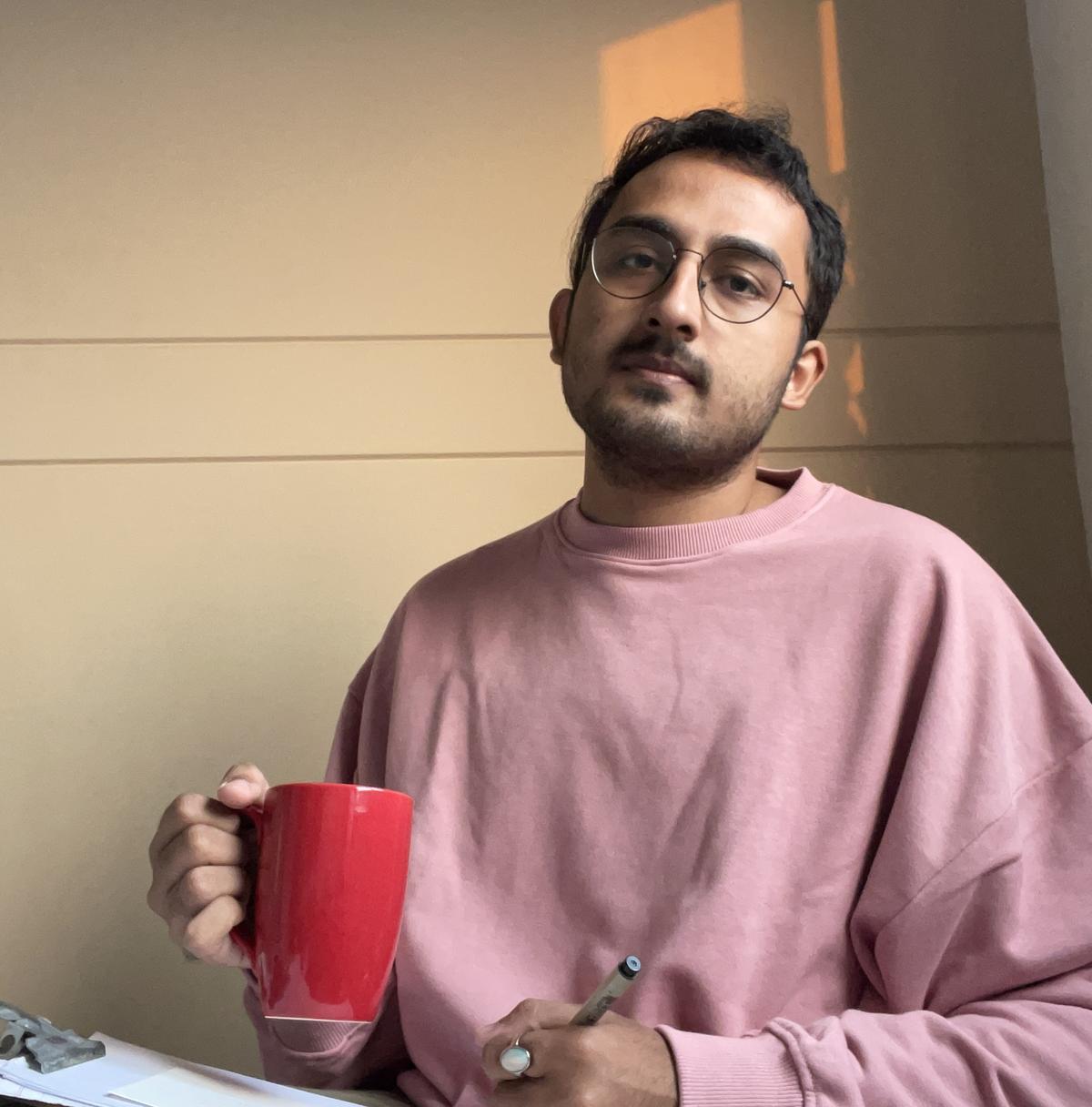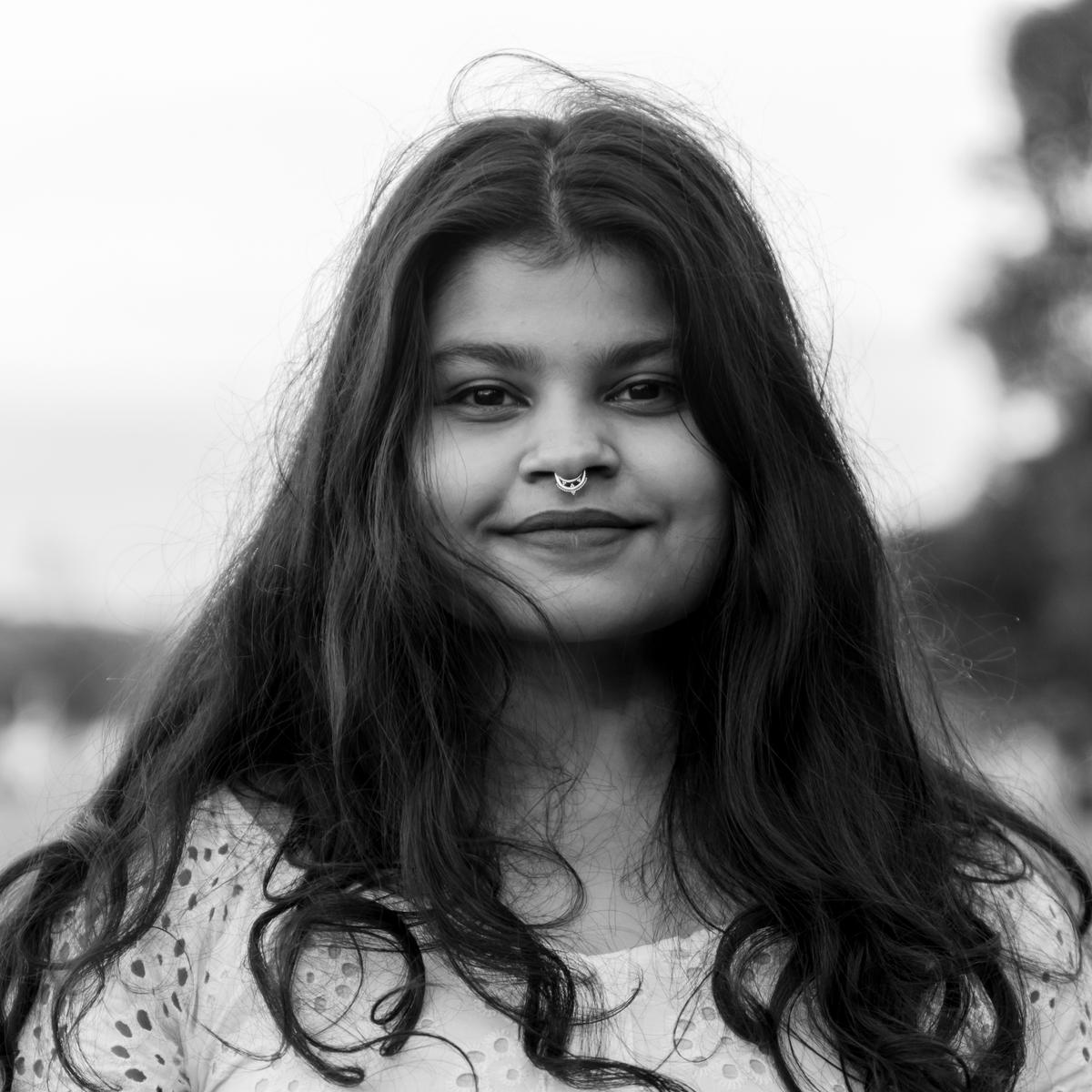Sourjyo Sinha and Rohit Ganesh are Dindun, a Kolkata-based duo who perform in Sylheti, Assamese, Bengali and English. The band will be at two venues in Bengaluru this month — at The Raft with Alva Kuuto on September 20, and with Sounds from the Library at Bangalore International Centre on September 25.
Talking to The Hindu over phone from Kolkata, Sourjya Sinha shares how Dindun shaped up and credits their fans and well-wishers for their growth:
Good vibrations
A self-confessed “bedroom musician”, Sourjyo says, “I’ve been writing songs since 2013 and uploading them on SoundCloud, not too many people were aware of it because it took time to build my confidence.”
He adds, “In 2016, a friend of mine who knew I wrote songs, was organising the Sofar event in Kolkata and invited me to perform — that was my first gig ever.”
That show propelled Sourjyo to form a band shortly after, called Whale in the Pond. “We recorded an EP and put it out, but for the most part, band members were busy with individual projects. However, one of them introduced me to Rohit.”
That meeting proved to be a musical match made in heaven, as both Rohit and Sourjyo brought complementing assets to the table. “Rohit has always been into producing, mixing and the technical aspects of song-making. I bring songs in their skeletal form, after writing the lyrics and tunes. That’s how we work.”
Rohit Ganesh (left) and Sourjyo Sinha of Dindun
| Photo Credit:
Special Arrangement
The duo collaborated on a song titled ‘Your Love Makes Me Dance’, which they released in 2018, on YouTube as a standalone video under their own names. “At the time, I was still churning out music, and our collaboration strengthened with ‘Your Love Makes Me Dance’. Rohit fills those gaps in production that I cannot ideate in a song. It’s a fruitful partnership we share.”
They went on to record four more songs in 2018, and called themselves Dindun. “That’s what I used to call my grandmother as a child. The word itself has a bell-like, musical quality to it,” says Sourjyo.
Boys to men
Sourjyo admits that in the initial years, both he and Rohit considered Dindun a studio project. Rohit was working out of Mumbai and Sourjyo was in Kolkata, both pursuing individual professional paths. “We would get together when we wanted to take a break from work; we’d make music for two months, release it and carry on. Our aim was to keep it simple and not overthink our musical inclinations.”
With this uncomplicated approach, they released two EPs — Dindun Volume 1 in 2018, followed by Dindun Volume 2 in 2022. However, things changed when they won the Bengaluru-based Toto Music Award in 2023. Around the same time, a popular YouTube channel in Bangladesh covered their songs.
“Till then, we had never actively promoted our work or followed a sustained social media campaign — our popularity was spreading via word of mouth. It dawned on us then, that this might be a bit more serious than we were giving it credit for.”

DinDun Vol 3 cover
| Photo Credit:
Ruth Dhanaraj
“In the same year, we got invited to play at a music festival in Kolkata. We saw that without asking for anything, our music was giving something back to us. So we decided to treat it with more seriousness and integrity than we had till that point.”
The results are clear to see in Dindun Volume 3. This EP was crowdfunded and is complete with visuals and videos, and its recording and production quality show a marked departure from their previous releases.
Sourjyo says Bengaluru will see the efforts of a five-member team — manager Adrijaa Mridul Majumder, Sourish Mustafi who designs their cover art and social media, and Adrija Samal who handles their videography and photography.
“This is the first time we’ve put out our music in a sustained, planned manner. It has been eight months of hard work with everyone pitching in; no amount of crowdfunding money could compensate for that. Everyone did it because they believed in it.”
“This was our way of giving back, of showing the people who supported us when we were not giving it as much importance that we could be better, and do better,” says Sourjyo.
Adrijaa Mridul Majumder
| Photo Credit:
Special Arrangement
Thus, Dindun collaborated with Kolkata-based drummer Gaurab Chatterjee for ‘Chorali’, the first number in their latest EP. They were also in consultation with Neon Culture, a Bengaluru-based music consultancy company which helped them plan the album cycle and more.
“Since we were studio centric initially, we never wanted our work to be performance heavy; we never considered performing live. Hopefully, in time we will be able to incorporate a bassist and another musician who can play multiple instruments,” says Sourjyo.
More than words
Dindun Volume 3 is exclusively in Sylheti, a language spoken primarily in Assam, North Eastern India and Bangladesh, while the first two sported a mix of Assamese and Bengali as well. For their Bengaluru show, Dindun will perform in all of the above, as well as in English.
“I sing in Sylheti which is spoken in the southern districts of Assam where I grew up. There’s not a lot of literature, music or films in Sylheti which is a spoken language and not a written one,” explains Sourjyo.
He goes on to add, “Singing in Sylheti is a way for me to assert claim over my identity. I feel I belong and I know where the words come from. Sadly, Bengali has consumed the local languages and those who speak Sylheti are considered gruff,” he says, ruing how major languages take over local dialects and languages.

Sourish Mustafi
| Photo Credit:
Special Arrangement
Which is why Sourjyo felt a connect with Bengaluru band Alva Kuuto with whom they’ll be playing. “I related to what Praveen, founder of Alva Kuuto does on stage. They sing in Tulu, another spoken language which is being edged out, to assert their identity.”
Sourjyo says their one-hour slot, will see them perform in Sylheti, Assamese, Bengali and English. Their first ever India tour will see them stop at Mumbai and Delhi before concluding in Kolkata.

Adrija Samal
| Photo Credit:
Special Arrangement
Dindun will play at The Raft on September 20, tickets on Skillbox. With Sounds from the Library at Bangalore International Centre on September 25. Entry free, but RSVP on site required.
Published – September 19, 2024 01:09 pm IST